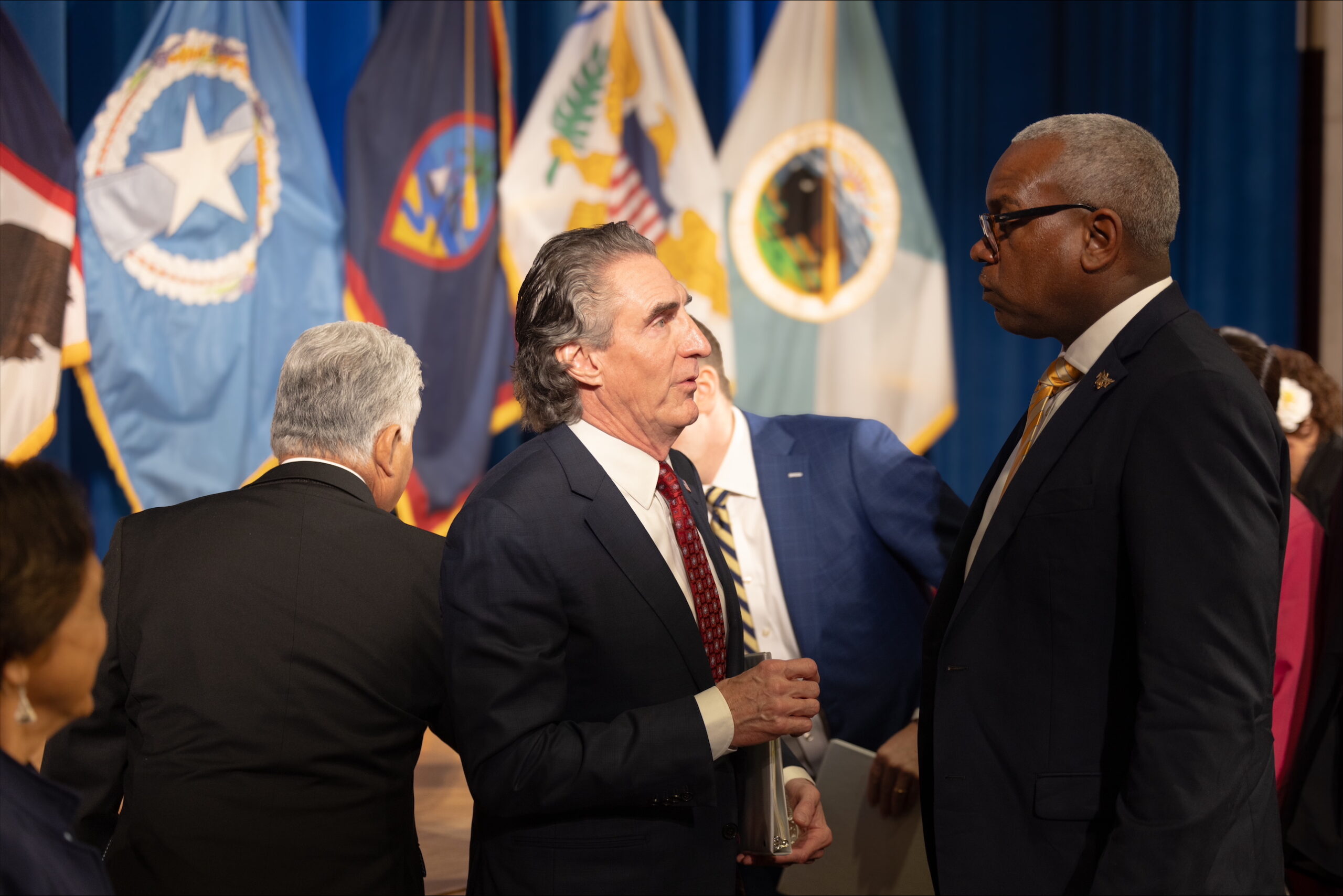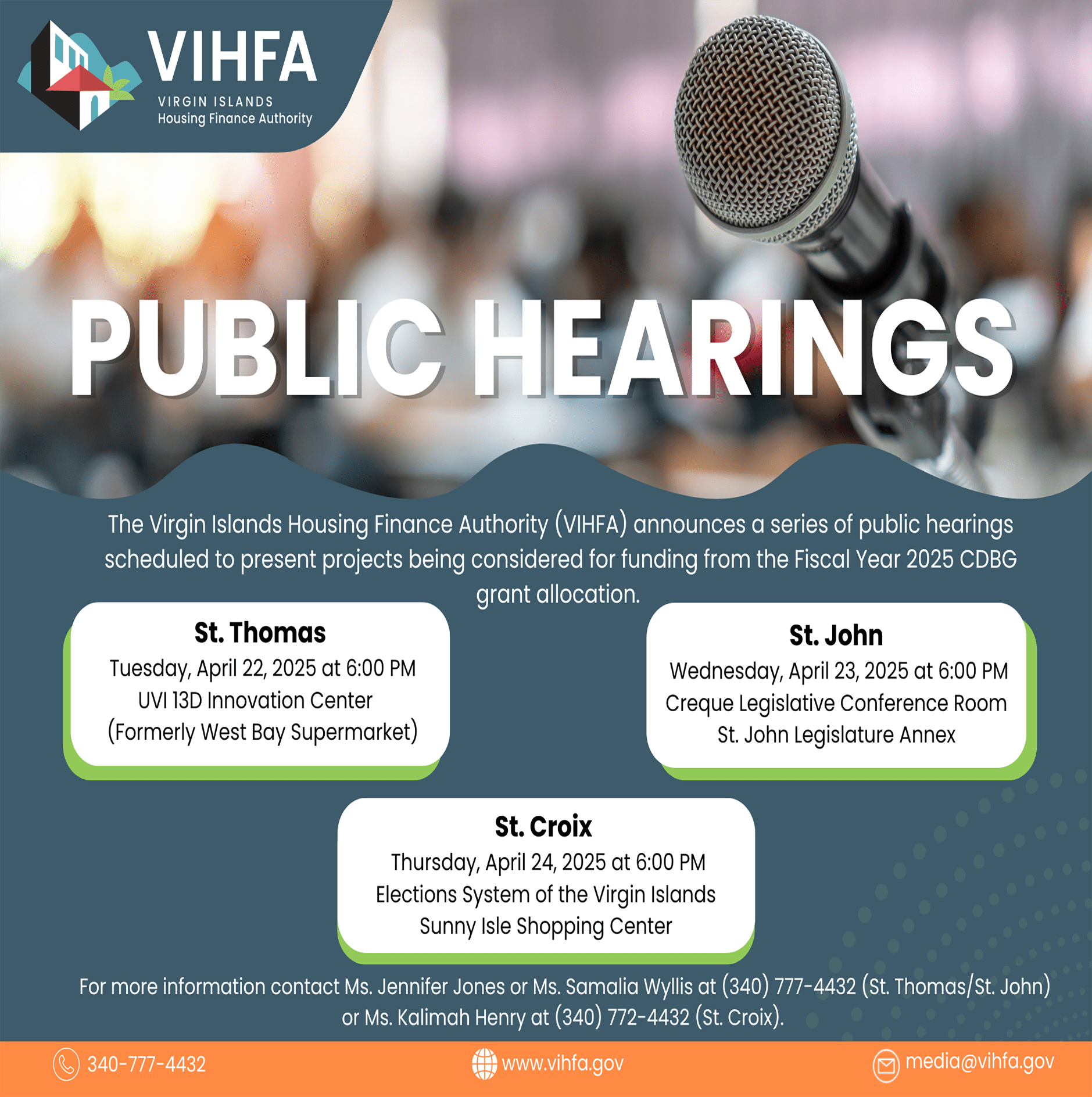
Gov. Albert Bryan Jr. continued his administration’s advocacy for the U.S. Virgin Islands at the 2025 Interagency Group on Insular Areas (IGIA) meeting in Washington, D.C., calling for a permanent extension of the rum cover-over tax rate, the reopening of the St. Croix refinery, and a special visa waiver program to boost tourism and support the territory’s recovery, Government House announced.
Speaking at the Department of the Interior in Washington, Bryan emphasized the need for stable federal policies that impact the Virgin Islands economy. He congratulated Interior Secretary Doug Burgum, a former North Dakota governor and his colleague at the National Governors Association on his leadership role and highlighted the importance of federal collaboration with the territories, according to the press release.
“The IGIA remains a critical platform for the Territories to share their priorities and challenges,” Bryan said. “For the Virgin Islands, the rum cover-over program, the refinery, and a targeted visa waiver are vital to securing our economic future and supporting our recovery efforts.”
Bryan pressed for a permanent extension of the rum cover-over tax rate, which returns federal excise taxes on rum produced in the Virgin Islands to the territory’s treasury. The funds support public services, infrastructure, and debt obligations, making up nearly 33 percent of the USVI’s general revenue. The higher $13.25 per proof gallon rate expired in 2021, reducing revenues by 20 percent and straining the budget. Bryan urged Congress and the administration to make the rate permanent and provide retroactive relief for lost revenue, the press release stated.
“While the Virgin Islands has always appreciated Congress’s efforts to support the territory through tax extenders, the uncertainty of temporary extensions makes it difficult to plan for the future,” Bryan said. “We’re committed to working with our federal partners to ensure a permanent solution.”
Bryan also underscored the need to reopen the St. Croix refinery, which historically generated $25 million in annual tax revenue and provided substantial employment. The facility has remained closed since 2022 due to regulatory challenges despite significant private investment to restart operations, the release stated.
“Reopening the refinery would not only restore jobs and tax revenue for the Virgin Islands but also strengthen energy security for the broader region,” Bryan said. “We are committed to working closely with federal agencies to ensure the refinery can reopen responsibly and sustainably.”
To support tourism and labor needs, Bryan pushed for a special visa waiver program modeled after similar initiatives in Guam and the Northern Mariana Islands. The program would allow short-term, visa-free visits from neighboring Caribbean nations and select international markets, expanding tourism and addressing workforce shortages, the release stated.
“A targeted visa waiver program would not only expand tourism but also provide the temporary labor force we need to support ongoing recovery efforts and infrastructure projects,” Bryan said. “With so many federally funded recovery initiatives underway, the demand for skilled and unskilled workers far exceeds our local capacity. A visa waiver program can help close that gap while boosting economic activity.”
Bryan stressed that the program would include necessary security measures, noting that the Virgin Islands remains outside the U.S. customs zone, ensuring all travelers are screened before entering the mainland, the release stated.
Throughout his testimony, Bryan emphasized the importance of strong federal partnerships and acknowledged Burgum’s leadership at the Department of the Interior. He noted that Burgum’s experience as a former governor provides valuable insight into the challenges facing U.S. territories, it said.
“We will continue engaging with members of Congress, the White House, and federal agencies to ensure that the Virgin Islands remains a priority in national policy discussions,” Bryan said. “The rum cover-over, the refinery, and the visa waiver program are all critical not just to our economic resilience but also to our long-term recovery. We look forward to working with our federal partners to turn these goals into realities.”










